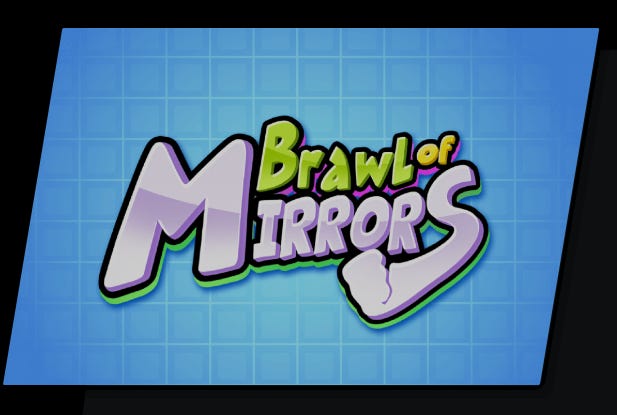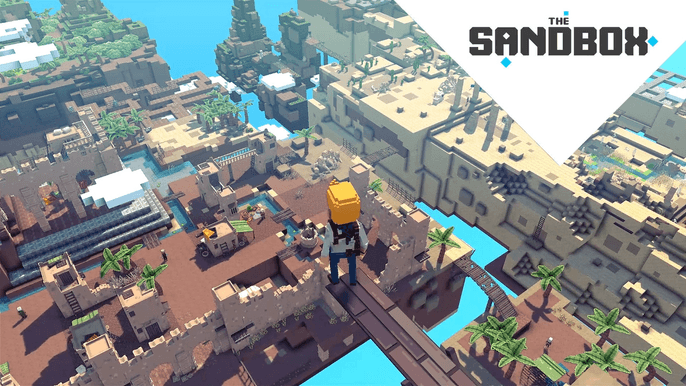What is blockchain gaming? Everything You Need to Know
Blockchain gaming is an emerging field that promises to redefine how we play games. Find out what it is and why everyone should pay attention to this new innovation.
The gaming industry is experiencing a renewed renaissance.
In recent years, Covid-driven social isolation saw the industry experience a surge of new users and profit. According to Mordor Intelligence, the gaming industry was valued at $198 billion in 2021, and is expected to reach $339 billion by 2027.
Accenture also noted that 84% of survey respondents said gaming helped them connect with people with similar interests.
Besides the social experience, the integration of new technologies, especially blockchain is helping fuel growth and attract a new segment of gamers interested in financial gain.
In recent years, blockchain gaming has become so popular that the niche industry grew by 2,000% in the one-year period from 2021 to 2022.
To understand what blockchain gaming is, let’s first look at blockchain technology itself.
As a decentralized and shared database, the blockchain acts as a ledger that verifies and maintains a record of cryptocurrency transactions such as Bitcoin and Ethereum. Besides digital currencies, the blockchain performs the same task for non-fungible tokens (NFTs) or digital assets.
So how does the blockchain fit into games?
Unlike traditional online games, blockchain games are not hosted on a centralized server that only the creator has access to. The blockchain decentralizes gaming, with the community responsible for development and outcomes.
If the game creator decides to push an unpopular update, players can fork or take the game’s source code and build a different version.
Blockchain games also allow players to use cryptocurrency to buy, trade, and sell in-game assets or experiences on a marketplace.
To play, users must own cryptocurrency in a digital wallet. The most common cryptocurrency used in crypto games is Ethereum as most games are built on the Ethereum platform.
How Can Blockchain Be Used In Gaming?
The main benefit of blockchain integration in gaming is the ability it gives players to have true ownership over their characters, features and in-game assets.
This is because the blockchain helps authenticate ownership and prevent duplication of items.
Before blockchain games, in-game assets or accrued experience such as extra lives, special weapons, and virtual currency could only be used in that game. Once the player stopped playing, the assets became worthless and had no value elsewhere.
This centralized model benefited game developers over players and users.
With the decentralized blockchain, players have more control and can transfer their assets anywhere on the network, including to other games.
How Blockchain-Based Games Earn Money
Blockchain games provide creators a variety of ways to earn money.
In the first method, creators make a game free to play in the hope of maximizing reach and to build an active community of players.
As players engage and trade or sell game items in the marketplace, the creators receive a share of the transaction fee or gas fee levied on each exchange of items linked to their game.
The gas fee is a small tax applied on each transaction on the blockchain to compensate individuals who devote computing power to verify transactions. This also helps prevent the system from being overwhelmed.
Some crypto game developers also partner with advertisers to display in-game ads which players are forced to watch in exchange for an award, but this format is not common as it’s unpopular amongst gamers.
Instead, partnerships are taking a creative twist. For example, crypto game developer Spinterlands recently partnered with Warner Bros to make games in which artists under their label can promote their music and build a brand.
The other source of income available to creators is to charge an entry fee or force players to purchase items to gain access.
Some developers take this a step further by requiring additional purchases to improve the gaming experience.
Why Are Blockchain Games Popular?
Blockchain games are entertaining and integrate real-world economics into the gameplay.
By allowing players to make money while having fun, their meteoric rise in popularity becomes easy to understand.
But monetary gain is not the sole reason for the success of crypto games.
There are a range of reasons under the hood. One of these is that blockchain-based games eliminate inefficient third-party intermediaries during in-game transactions.
This means that money can be moved fast, and without any hidden fees which allows players to maximize profit.
Players also find it easier to stay anonymous in crypto games as there is no requirement to share their personal information such as name or email.
Blockchain games are also secure.
Over the years, most major gaming platforms from Steam to xBox Live and Sony Playstation have been hacked, with confidential information of players from logins, passwords, and credit card details leaked.
Play-to-Earn Games Explained
Games based on the play-to-earn (P2E) model let players earn rewards with real-world value through some necessary interaction.
Examples of such interactions include completing tasks, beating other players in battle, or leveling up in the game. These rewards take various forms, ranging from NFTs, crypto tokens, virtual assets, or special game features.
These rewards can then be exchanged or sold on a marketplace for fiat wealth.
Although blockchain games are still in their nascency, the P2E model has taken the world by storm and has the potential to redefine the gaming experience altogether.
In the Global South, P2E is helping improve lives by providing alternative career options. For example, in the Philippines, it’s not uncommon for crypto gamers to earn double or triple the minimum wage.
The same pattern has emerged in other developing markets such as South America.
For example, Argentines are leading the region as crypto gamers to beat inflation.
With a growing user base in developing countries, the P2E model can be life-changing.
Examples of Blockchain Games
With over 400 blockchain games, getting started can feel overwhelming.
While some gaming studios follow a formula, others innovate and set trends.
An example of the latter can be seen in Mirror World blockchain games. Mirror World is a gaming matrix featuring AI-powered virtual beings known as the Mirror.
These entities or mirrors fight along players in the game universe.
Mirrama
Mirrama by Mirror World is an action role-playing crypto game available on iOS and Android.
Set in the city of Xalem riddled with plague and monsters, players must use their skill to find a way out.
Mirrama characters are classified by their rarity, level, class, and faction. These factors play a key role in subsequent growth and development
Brawl of Mirrors
As a player-verus-player game, Brawl of Mirrors is all about strategy and beating opponents.
Like Mirrama, characters in Brawl of Mirrors are classified by various attributes that influence health points, attack and defense power, and stamina.
The game is still in the testing phase but will be available for iOS and Android.
Axie Infinity
Built by Vietnamese gaming studio Sky Mavis, players in Axie Infinity raise digital pets known as Axies.
To get started, each player must purchase three Axies. From here, the virtual creatures can be raised for collection, breeding, or battle.
With almost 709,000 active players in the last month, it’s one of the most popular blockchain games in the market today.
The Sandbox
Built by Pixowl, The Sandbox is a virtual world or metaverse multiplayer game built on the Ethereum blockchain.
Using the game’s token, known as SAND, players can purchase, build, and govern digital real estate in the form of an NFT.
Within their property, players can customize the area with playable games and experiences.
Besides the average gamer, celebrities are also jumping into The Sandbox. Recently, it was revealed how Snoop Dogg had built a private mansion in the game to host exclusive parties and present his NFT collection.
Not far behind are big corporations such as financial services provider HSBC who bought land to engage with esports and gaming enthusiasts.
Splinterlands
Splinterlands is an NFT card game, much like Magic: The Gathering.
Created by Jesse Reich and Matt Rosen in 2018, and running on the Hive blockchain, the basis of the game is to get players to battle through cards.
Winners of a battle are awarded dark energy crystals, an in-game token, which can be exchanged for other cryptocurrencies or cash.
Besides battle, players can also go on quests to earn tokens and get access to special potions and booster packs.
With over 500 cards in the game based on seven elements or Splinters: fire, water, earth, life, death, dragon, and neutral, the game had 363,000 active users in the last month.
Alien Worlds
Alien Worlds is a space exploration game which lets players explore and scavenge planets for resources, earn in-game tokens, and complete missions to earn unique items.
Developed by Sarojini McKenna and Michael Yeates, the game runs on multiple blockchains, including Ethereum, WAX, and Binance Smart Chain.
Alien Worlds is among the most popular crypto games, with over 700,000 monthly active users and 11 million daily transactions.
The Future of Crypto Gaming
Despite the volatility of the cryptocurrency market, blockchain-based games continue to attract investment.
In just the first quarter of this year, 128 crypto gaming companies racked up a total of $1.2 billion in funding, according to a report by Drake Star Partners.
Both individuals investors and venture capital firms are pouring money in. A few examples include Mark Cuban backing Sky Mavis with $7.5 million and Framework Ventures launching a $400 million fund for Web3 startups, including games.
Besides investors, blockchain platforms such as Solana and Polygon are also investing in crypto games.
Solana is investing $150 million into crypto games being built on the Solana blockchain while Polygon is spending $200 million to do the same for games on its network.
Further helping push crypto games into the mainstream are traditional studios such as Epic Games who revealed it was open to adopting blockchain games .
But it’s not all good news. Last year, Steam, a leading gaming platform, similar to Epic Games, decided to block blockchain games on its platform and reiterated its policy to ban items that have real-world value.
Despite the setback, a constant stream of investments, hype, and positive use case means the future is bright for crypto games.
How to Invest in Blockchain Gaming
Whether you’re a gamer, have never played a game before, a blockchain enthusiast, or looking to diversify your portfolio, the good news is anyone can invest in crypto games.
One of the easiest ways to get started is to purchase game tokens directly on an exchange.
For example, AXS, which is used in Axies Infinity can be purchased directly on Binance.
Another option is to directly invest in crypto gaming studios during funding rounds.
For example, Sky Mavis and Enjin both recently raised capital. Investing at the source rather than a volatile token market can be a better alternative for more risk-averse investors.
But outside of these options, the best method to invest in crypto games is to spend time playing a game and earning rewards.
Key Takeaways
Blockchain technology is disrupting entire industries, including the gaming market.
Early crypto games have laid the foundation for widespread adoption and have merged the worlds of entertainment and finance.
Here are the facts everyone should know about crypto gaming:
Crypto games provide a decentralized experience which gives players full ownership over characters and assets rather than a single centralized entity
Players can earn real money while playing with the play-to-earn model
The crypto gaming market is booming in developing countries where players can often earn more their normal wage
Alien Worlds and Axie Infinity are two of the most popular crypto games
Despite the challenges and volatility of crypto markets, investors are betting big on crypto games and and investing in new projects
If you are interested in Mirror World SDK, please check the following links:
Website: https://mirrorworld.fun/developer
Twitter: https://twitter.com/mirror_matrix
Discord: https://discord.gg/etxTKamATs








